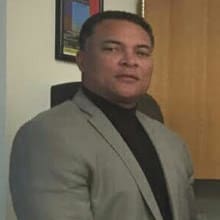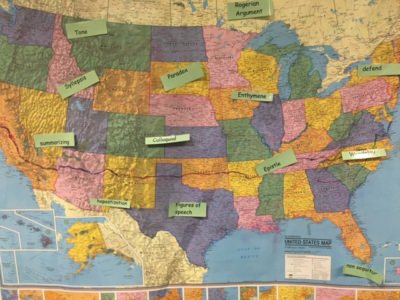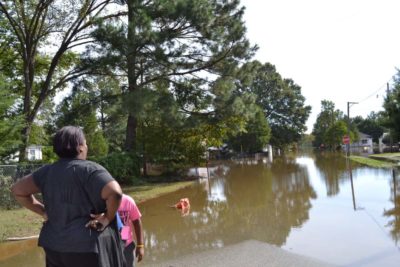Neither a conversation nor any real meaningful planning can take place around expanding educational opportunity in North Carolina without addressing issues of equitable access of ALL students to a quality education. In the soon to be released action plan and recommendations by the Public School Forum of North Carolina’s Study Group XVI, titled Expanding Educational Opportunity in North Carolina, committee members focused their collective expertise on three areas: Trauma & Learning, Racial Equity, and Low Performing Schools. Taking a student-centered approach, the Racial Equity Committee bravely tackled race and racism as an underlying issue to inequities and lack of access by students of color in North Carolina.
In addressing the issue of racial equity, members of the Public School Forum Board of Directors, along with Forum staff, solicited committee membership by education stakeholders from across the state of North Carolina to look at racial inequities. More than 60 individuals — including active and retired public school teachers and administrators, college and university staff and faculty, various governmental agency staff, as well as a number of individuals affiliated with nonprofit community organizations — joined the Racial Equity Committee. As one might imagine, given a group of individuals with diverse backgrounds and experiences, the ideas on race and educational inequities were varied and yet vital to approaching and addressing such a sensitive, yet oftentimes charged topic.
“In order to build equitable schools, we’ll need to have some really hard conversations. We’ll have to talk about racism and slavery, about privilege and class, and about sexism and patriarchy. We’ll have to talk about our own experiences as kids in school and about our own biases and misconceptions.”¹
In broaching a topic with such deep social and historical roots in our state, it was imperative that the committee members first establish a common understanding of how race-based strategies evolved. The kick-off meeting for Study Group XVI included a presentation by Ann McColl, an attorney and expert on the racial dimensions of early public education. Ann provided a historical view on racially motivated education practices, policies, and laws. We learned through Ann’s research that the actions of North Carolina’s early architects of public education actually laid the foundation of systematic inequalities for which many of the race-based ills we seek to remedy rest. Despite major United States Supreme Court decisions and policy changes over time, there are a number of trends in education that demonstrate that, based on race, we are still separate and still unequal.
Our history seems to be cyclical in creating inequities that are hidden behind arguments of conveniences or inconveniences. Major public school systems, once serving as models for effective desegregation practices, are once again segregated through neighborhood school assignment plans and the increase in school choice options. Many schools within a school district have evolved into what can be categorized as “haves” or “have nots” when it comes to access to valuable resources.
Motivated by a common understanding of past and present race-related conditions, the work of the committee immediately began with the encouragement of members to openly share and participate in honest and direct conversations based on their individual perspectives and experiences. A secure online venue was established to allow members to post and comment on articles, research findings, and peruse policy analysis and other sources of information for which race, education, and social constructs could be closely examined — both from a national as well as a state perspective. Key topics quickly manifested and morphed into a literature review that included what could be considered as evidence and validation for the committee’s work.
The Racial Equity Committee subdivided its work into seven domains: resegregation; discipline disparities; the opportunity gap; overrepresentation of students of color in special education; access to rigorous courses and programs; diversity in teaching; and culturally responsive pedagogy. With an online venue in place for continuous communication and dialog, committee members were able to contribute, vet and reference articles and research topics aligned with the seven domains.
In addition to the coordination of information sharing, co-chairs for the Racial Equity Committee worked with Public School Forum staff to convene a series of meetings consisting of presentations by experts in education, law, and sociology. The very first presentation to the committee was facilitated by Racial Equity committee co-chair Deena Hayes-Greene of the Racial Equity Institute. Hosted by the International Civil Rights Center and Museum, Deena’s presentation provided insight into key observations on how and why systematic racial inequality is rooted in systems well beyond education. The first meeting also included a presentation by the Campaign for Racial Equity in Chapel Hill-Carrboro Schools. Despite a lower minority student enrollment than most school systems across the state, a group of local community members and stakeholders with diverse backgrounds started a movement to address racial equity within the school system. The movement resulted in eight equity goals being proposed to the Chapel Hill-Carrboro Schools Board of Education.
The second Racial Equity Committee was hosted by MCNC and included live interactive video conferencing across three select college campuses — allowing remote participation by committee members far outside the Raleigh area. The purpose of the second presentation was to take a closer look at gaps in student achievement and education disparities from a sociological perspective. Dr. Lou Fabrizio, director of the Division of Data Research and Federal Policy at the North Carolina Department of Public Instruction, presented a comprehensive picture of the state of racial equity based on testing data and student variables, student short- and long-term suspensions, and a range of other key indicators and measures. The consistent theme found in the data was the continued low performance of students of color as compared to their white and Asian counterparts.
Following the presentation on achievement gaps, Dr. Angel Harris, professor of sociology at Duke University and director of the Program for Research on Education and Development of Youth (REDY), presented on ideas of social structures when examining gaps in academic achievement between students of color and their white counterparts. Dr. Harris noted that racial achievement gaps are a byproduct of a much larger gap in opportunity and that it must be addressed systematically.
With the committee’s heightened awareness of the conditions for which culture and systems exist in perpetuating barriers to racial equity, subsequent meetings took the form of work sessions for the purpose of synthesizing the collection of information around the following seven major domains, under a common definition of terms established by committee members.
- Resegregation: Several school systems are trending toward racial isolation based on a movement to neighborhood school assignments, and charter schools have become hyper-segregated with black and white families choosing unbalanced schools.
- Discipline Disparities: In North Carolina, black students are four times more likely to be suspended for the same offense as whites. High rates of suspension takes away valuable instructional time for students of color and also lead to being labeled as “behavioral” or referred for emotional services.
- Opportunity Gap: Minority students are significantly underrepresented in Academic and Intellectually Gifted programs.
- Overrepresentation in Special Education: In North Carolina, all racial subgroups remain relatively proportionately represented, with the exception of African Americans, who make up 26 percent of all public schools students yet comprise 32 percent of all school-aged children with disabilities.
- Access to Rigorous Courses and Programs: Students of color are underrepresented in the most rigorous courses and programs offered in North Carolina public schools.
- Diversity in Teaching: In North Carolina, minority teachers only make up 18 percent of the total teaching workforce while 50 percent of the student population are minorities.
- Culturally Responsive Pedagogy: Teachers must be able to relate to the students they serve. Teachers need to understand their students both as individuals and as representatives of their communities.
Established on the tenet of being a frequently-consulted education “think tank,” over the years the Public School Forum has evolved from simply producing policy analysis and conducting research, to identifying and recommending strategies and plans of action. The Study Group XVI Action Plan and Recommendations is another example. The causality and resulting circumstances of racial inequity cannot be addressed in isolation or by a committed few. It will require a systematic call to action.
Marc Morial, president and CEO of the National Urban League, stated in the 2016 State of Black America Address:
“Now we right the wrongs in history. Now, we right the wrongs in our education system. Now, we right the wrongs in our economy. Now, we right the wrongs of mass incarceration and unequal justice. But the glory won’t be ours without a plan.”
For North Carolina’s 1.5 million K-12 students, the time is now. We must face these challenges and inequities head on with the courage and strength to make significant and systematic changes. Only in making racial equity an education imperative will we begin to truly be able to give every child in North Carolina the opportunity to receive a sound basic education.
¹Aguilar, E. (2016). “The Road to Equity is Paved with Emotions”. Edutopia.





